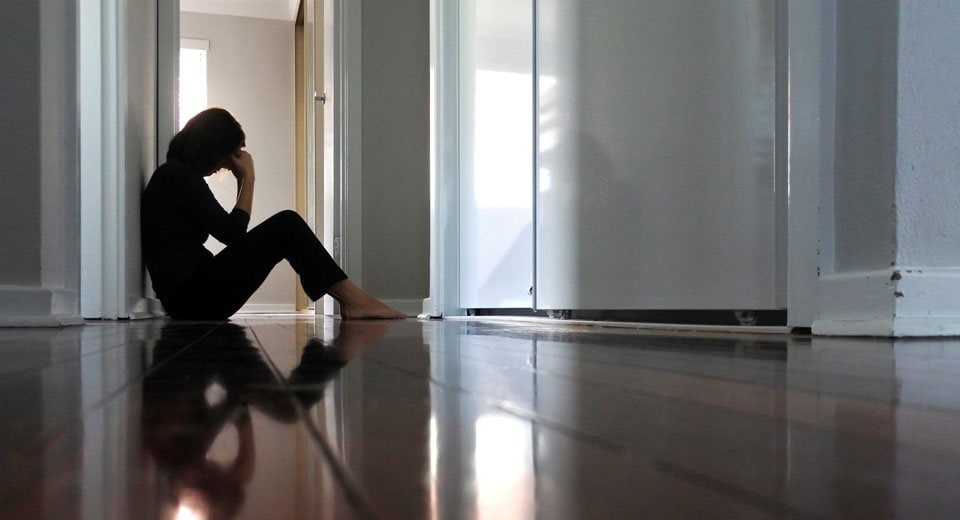After a stroke, depression is common

Any type of life-changing illness can cause depression, but a new study reported by the American Heart Association found that having a stroke carries twice the risk of depression as a heart attack does. The risks are even higher for women. Another recent study found that women stroke patients were 20 percent more likely to suffer from depression than men.
“It’s very hard to get a clear number but if you look at the best studies, they say about one-third of stroke survivors develop depression at some point,” said Neurologist Mathew Pulicken, MD, MHS at Neurologists of Cape Cod in Hyannis. “It’s something that might go under-reported or under-diagnosed because you are more inclined to see the deficits in strength or trouble with speaking – things that are more easily demonstrated.”
People with large-vessel strokes are more likely to develop depression than small-vessel or lacunar strokes. Dr. Pulicken said there is a scientific reason this is true. A large-vessel stroke causes greater structural injury, which can disrupt chemical pathways.
“Mood is very much regulated by chemicals in the brain,” he said. “It’s hard to measure these chemicals with tests but when you have structural injury, any of those chemical pathways can get affected, and this can lead to mood changes.”
Mood disorders like depression are under-reported, as it may manifest as other symptoms and is difficult to test for other than using self-reported depression scales. It also requires the patient to admit to suffering from symptoms suggestive of depression to make the diagnosis. Some patients underplay their symptoms because they are more focused on motor deficits, he said.
Signs of Depression
According to the National Institutes of Health, signs of depression include:
- Loss of appetite
- Not motivated to get out of bed
- Not having any joy in life
- Frustration to the point of not coping well
- Feeling hopeless.
It is very common for a person who has had a stroke to wonder why this happened to them, but if clinical depression is present, it can hamper recovery, Dr. Pulicken said. It can affect quality of life and even prevent the best possible physical recovery outcome.
“People with depression following a stroke can have a poorer clinical outcome because their ability to participate in rehab is hampered, and some people give up and don’t continue with recovery efforts,” he said.
It can also affect a person’s personal relationships. A recent study presented at the American Stroke Association’s virtual International Stroke Conference found that nearly 60 percent of stroke patients suffer from some kind of sexual dysfunction. Only 10 percent described their sex life as good.
Even though the worst clinical effects of a stroke occur right after the stroke, everyone will improve to some extent over time, and recovery depends on the individual person and other factors including age, location and mechanism of the stroke. The goal for best recovery is with rehab, and delaying or not participating in rehab risks poorer overall outcomes.
Treatment Can Vary
Neurologists don’t automatically put all stroke patients on antidepressant medications because even though one-third of patients suffer from depression, two-thirds don’t. Risk factors include the mechanism and location of the stroke and mood and personality before the stroke. The American Heart Association study showed that the strongest predictor of depression was in people who had a history of anxiety.
“If there are clear signs of clinical depression following a stroke, medications affecting serotonin pathway are commonly used,” Dr. Pulicken said. “There are multiple medications which can be used to treat depression and usually the ones with least side effects are commonly used. During their post-stroke follow-up with neurology, we ask about symptoms commonly associated with depression and can initiate treatment if needed."
Neurologists can prescribe common antidepressant agents, but sometimes if there is poor tolerability, lack of clinical response or other associated mood issues and behavioral changes, management through psychiatry team would be more ideal.
“If commonly used antidepressant agents are not helping, evaluation and management through a psychiatrist would be more ideal, to decide on the optimal dose and choosing the best option, based on individual response,” he said. “The biggest question should be, are the depression symptoms affecting their quality of life and their ability to participate in rehab?”
Falmouth Hospital recently received two awards from the Massachusetts Paul Coverdell Stroke Systems of Care Collaborative:
- Achieving Door to CT scan in less than 25 minutes from arrival for at least 75 percent of stroke patients
- Recognition for participation in a Coverdell Stroke Systems of Care partnership
